Amnesty International Says Iran Is Torturing Prominent Rights Activist
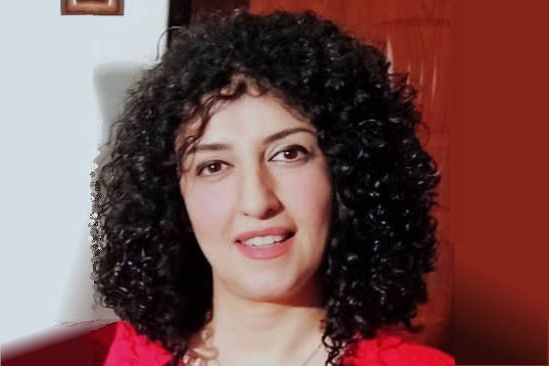
Amnesty International says Iran is torturing prize-winning rights activist Narges Mohammadi by denying her proper healthcare in reprisal for her campaigning.

Amnesty International says Iran is torturing prize-winning rights activist Narges Mohammadi by denying her proper healthcare in reprisal for her campaigning.
The rights group said Tuesday that Mohammadi, who suffers from lung and heart conditions, was taken to the infirmary of the notorious Qarchak women's prison on June 23 after experiencing shortness of breath and an irregular heartbeat. ()
Health and sanitary conditions at Qarchak, located forty kilometers to the south of the capital Tehran, are very poor in comparison with prisons such as Evin where most political prisoners and prisoners of conscience are usually held.
Since her return to prison from hospital, prison authorities "have been denying Mohammadi some of her required medication,” Amnesty added.
Her husband Taghi Rahmani, who is based in Paris, accused the prison authorities earlier this week of deliberately withholding medication sent by her family to treat a lung condition.
In a five-minute trial in late January, she was sentenced to eight years in jail and 70 lashes by Branch 26 of the Revolutionary Court, on trumped-up political charges.
Mohammadi, who was arrested in November last year, has been to jail several times over the past two decades. She was freed from Evin Prison in September 2020 after serving more than five years when she had no contact with her husband and children for long periods of time.
Persecution of human rights and political activists and executions have increased since hardliner president Ebrahim Raisi took office last August.
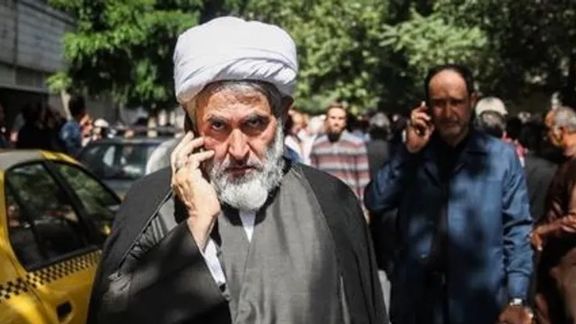
In another apparent twist at the top of Iran’s Revolutionary Guards, the New York Times claimed Wednesday that Brigadier-General Ali Naseri was arrested a month ago.
The Times was vague on Naseri’s position in the Guards (IRGC) and how it related to the removal last week of Hossein Ta’eb, the Guards (IRGC) intelligence chief, in the face of disquiet in senior circles over Iran’s response to a covert Israeli campaign.
Iran International has reported disquiet among top ranks over intelligence failures demonstrated by the May 22 assassination of IRGC Quds (Qods) Force colonel Hassan Sayyad in Tehran, while state media has also implied that the deaths of two aeronautical staff in late May and early June were suspicious.
The New York Times quoted Keren Hajioff, senior advisor to Israeli prime minister Naftali Bennett, that Israel was following a “new tactic” based on Bennett’s ‘Octopus Doctrine.’ The advisor said: “Now we go straight for the head,” instead of IRGC’s proxies in the region such as the Lebanese Hezbollah.
The paper cited an unnamed Israeli official that “part of the strategy entailed exposing failures by the Revolutionary Guards in their covert war with Israel in the hope that it would create conflict between political leaders and the defense and intelligence establishment.” Rivalries within the IRGC – with Esmail Ghaani (Qaani), head of the IRGC extraterritorial Qods Force, and Esmail Khatib, intelligence minister, critical of Ta’eb – would suit the Israelis’ approach.
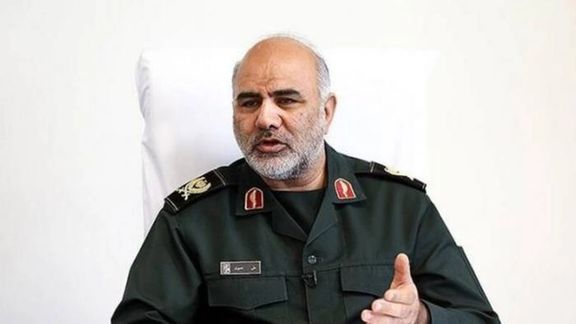
The Times described Naseri as “a senior commander in the Revolutionary Guards’ Protection of Information Unit, tasked with oversight and supervision of the organization’s work,” although the paper sourced this to an April 21 2019 story from Radio Farda that Naseri had been replaced in that position. The Iranian Students News Agency also reported at the time that Naseri had been removed.
‘Criminal media networks’
Two months later, on June 11, 2019, IRGC spokesman Ramezan Sharif addressed what he called rumors of the arrests or fleeing of commanders. These were efforts by Iran’s enemies to cause disruption through “criminal social media networks and media.”
Sharif insisted that three individuals named in various websites – taken to mean Naseri, Mohammad Tavalaee, and Mostafa Rabiee – were “active in new positions” and were “seriously performing in their missions and carrying out their duties,” with some of their public appearances reported in Iranian media.
There had been suggestions at the time that Naseri had fled the country, with the Washington Free Beacon claiming he had defected to an Arab state in the Persian Gulf taking with him secret documents.
The 2019 reports of Naseri’s dismissal came the day before Supreme Leader Ali Khamenei appointed General Hossein Salami as overall commander of the IRGC and two weeks after then US president Donald Trump added the IRGC to the US list of ‘foreign terrorist organizations.’
It remains unclear what position Naseri occupied prior to his recent alleged report. If he had been replaced in 2019, how he could have been trusted with another sensitive post?
So far, three key IRGC intelligence and security figures have been replaced and Ta’eb’s ally, parliament speaker Mohammad Bagher Ghalibaf is being attacked by some hardliners for corruption, an allegation widely believed to be true among Iranian observers who have followed him through his military and political career.
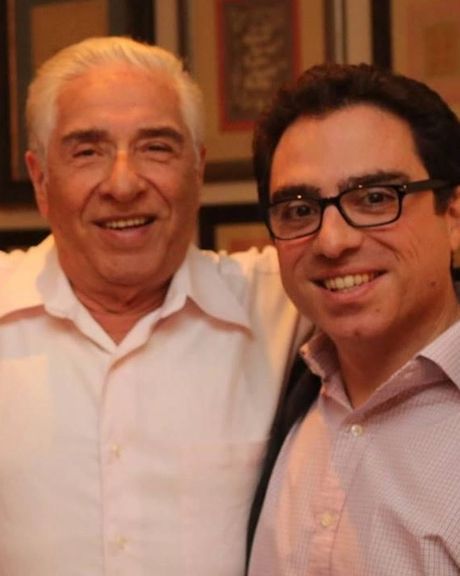
Jailed Iranian-American businessman Siamak Namazi has called on President Joe Biden for efforts to release him and other American citizens, asking him to “End This Nightmare.”
In a guest essay for the New York Times written "while caged in Iran’s notorious Evin Prison,” the longest-held Iranian American prisoner said Wednesday “the Biden administration’s approach to rescuing Americans in distress in Iran has failed spectacularly so far and unless the president intervenes immediately, we are likely to languish in this abyss for the foreseeable future.”
He said he was handed a 10-year sentence for speaking at university conferences and having a connection to the World Economic Forum, which the judge ruled as “tantamount to attempting to overthrow the regime in collaboration with a hostile foreign government -- meaning the United States.”
He said Iran frees its captives only if offered sufficient incentives, adding that “Tehran seems to be demanding more for our release than the White House can stomach.” “Mr. Biden, I implore you to put the lives of innocent American detainees above Washington politics.”
Namazi has been in prison since October 2015 on vague charges of collaboration with a foreign government. After Siamak’s arrest, his 84-year-old father, Bagher Namazi, a retired senior UNICEF official, traveled to Iran in 2016 to help him but he was also arrested and jailed in 2017 on obscure accusations.
Tehran is accused of detaining foreigners and dual nationals on trumped up charges to use them for getting concessions.
Namazi made the plea as Tehran-Washington indirect nuclear talks are underway in Qatar.
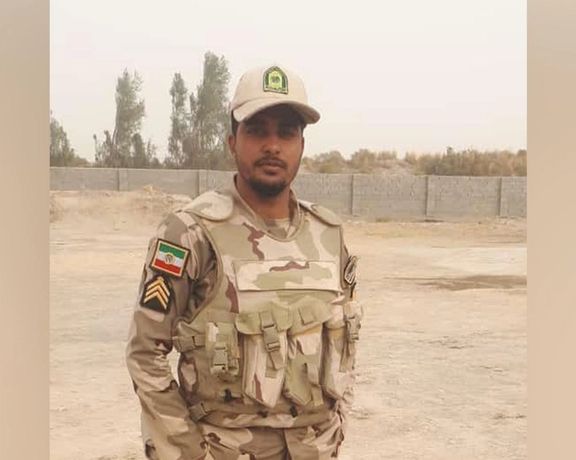
Conflicting reports surround the death of an Iranian soldier who was killed at the border with Afghanistan, while Tehran has urged the Taliban for justice for those behind the incident.
In a statement on Wednesday, Iran’s new foreign ministry spokesman Naser Kanani said Mohammad Sayyad died in line of duty by unknown gunmen at the Milak border crossing in Iran’s southeastern province of Sistan and Baluchestan on Tuesday.
Other reports say that the young border guard was killed in clashes with the Taliban.
Citing local sources, Afghanistan’s Hasht-e-Subh Daily said he was killed when a skirmish broke out after Taliban forces entered Iran "following the killing and wounding of two Afghan boys by Islamic Republic border guards."
Kanani said an investigation has been launched into the case and more details will be made public as soon as they are verified.
Iran’s official news agency IRNA said that the border guard was killed in clashes with armed outlaws who wanted to enter the country from Afghanistan.
Meysam Barazandeh, the governor of the Iranian border town of Hirmand, rejected reports that two Iranian border guards have been also captured by the Taliban.
In April, the border crossing Dogharoon was temporarily shut down following a “dispute” between Iranian and Afghan border guards.
There have been some incidents at the border since the Taliban seized control of Afghanistan last year. An Iranian foreign ministry official in January said that the reason for clashes between Iranian forces and the Taliban was lack of professional conduct by the latter.
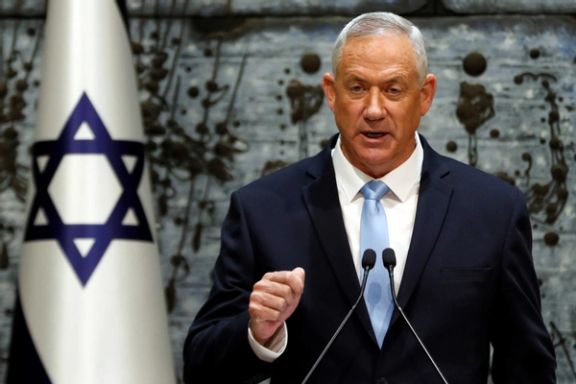
Israel says Iranian Revolutionary Guard conducted research to damage ships, gas stations and industrial plants in several countries including Britain, the US, France and Israel.
Defense minister Benny Gantz said on Wednesday that an IRGC cyber unit called “Shahid Kaveh” was involved in the alleged project.
Britain's Sky News reported similar allegations last year, saying the Iranian embassy in London had not responded to them.
Gantz hinted that Israel -- which is widely believed to have waged cyber war against Iran's nuclear facilities and other infrastructure -- may retaliate physically against enemy hackers.
"We know who they are, we target them and those who direct them. They are in our sights as we speak - and not just in the cyber-space," he said. "There is a variety of possible responses to cyber-attacks - in and outside of the cyber-domain."
Gantz also charged the Iranian-backed Lebanese militia Hezbollah of conducting a cyber operation designed to disrupt a UN peacekeeping mission on the border between the countries.
He said "Iranian security institutions in cooperation with Hezbollah (recently) launched a cyber operation with the aim of stealing materials about UNIFIL activities and deployment in the area, for Hezbollah's use".
"This is yet another direct attack by Iran and Hezbollah on Lebanese citizens and on Lebanon's stability," he told a cyber conference at Tel Aviv University, without elaborating.
Established in 1978, UNIFIL patrols Lebanon's southern border. It is charged with monitoring the ceasefire that ended the last war between Hezbollah and Israel in 2006.
Reporting by Reuters
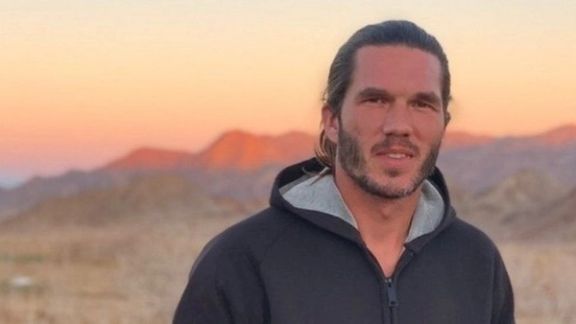
Iran confirmed a long prison sentence for French national Benjamin Briere on allegations of spying, as it began nuclear talks mediated by the European Union.
His Iranian Paris-based lawyer, Saied Dehghan, said Tuesday that an Iranian appeals court has upheld the sentence on charges of “spying” and “propaganda against the regime” and Briere was sentenced to eight years and eight months in prison.
The appeals court said in its verdict that Brière is "an agent in the service of an enemy state," and mentioned “sympathy with the victims of the Ukrainian plane” [Flight 752 downed by Iran]”, “IT expertise", and "possession of more than one hard drive and mobile phone” as reasons behind the decision.
The airliner referred to in the verdict was shot down by two air-defense missiles fired by the Revolutionary Guard (IRGC) on January 8, 2020, as it took off from Tehran’s Imam Khomeini International Airport killing all 176 people onboard.
Briere’s other lawyer Philippe Valent, said his case was being "instrumentalized" by the Iranian authorities. Accusing Iran of holding him as a "hostage." He added, "It's shocking and dramatic."
“It is unacceptable that Benjamin Briere remains a hostage to negotiations on the part of a regime that persists in its desire to arbitrarily detain a French citizen and use him as a bargaining chip,” he added, urging “the French, American and British authorities to make the liberation of hostages a pre-condition for the resumption of [nuclear] negotiations.”
"Benjamin Brière has obviously not - nor has he ever - been given a fair trial before impartial judges. He was not given any right to defend himself, no access to the prosecution's case, no opportunity to prepare and present a defense before the judges of the Revolutionary Court," Valent said in a statement, adding that he would appeal. "The family of Benjamin Brière is now calling on the French authorities to take immediate steps to allow his repatriation".
On Tuesday, France's foreign ministry said that the sentence had no basis in fact and was "unacceptable".
His sister Blandine Brière told AFP that her brother was a "political hostage," saying that "It is clear that this is a useful political trial for Iran, which sends a message to the French government. We are nothing in the face of this, we feel like pawns in a diplomatic game."
Briere, a 36-year-old travel blogger, has been held in Iran since May 2020, when he was arrested after flying a recreational helicam -- a remote-controlled mini helicopter used to obtain aerial or motion images -- in a national park near the Turkmenistan-Iran border. He went on hunger strike at Valikabad prison in Mashhad in December to protest his detention conditions.
In the past decade, Iran's Revolutionary Guards have arrested dozens of dual nationals and foreigners, mostly on unproven allegations of espionage and breach of security, in what human rights organizations have said is essentially hostage taking.
The sentence comes as indirect or "proximity" nuclear talks between Iran and the United States began Tuesday with negotiators in different parts of a hotel in Doha, Qatar.
Enrique Mora, the European Union official who chaired year-long talks in Vienna aimed at reviving the 2015 Iran nuclear deal (the Joint Comprehensive Plan of Action, JCPOA), is acting as a mediator between the teams led by Rob Malley, the United States special envoy, and Ali Bagheri-Kani, a deputy Iranian foreign minister.